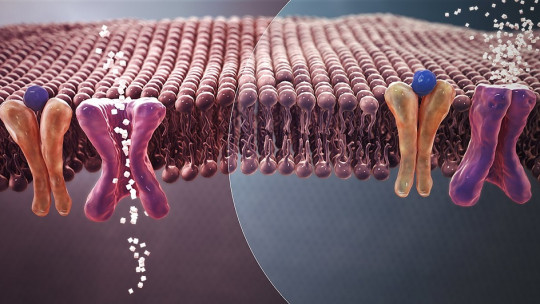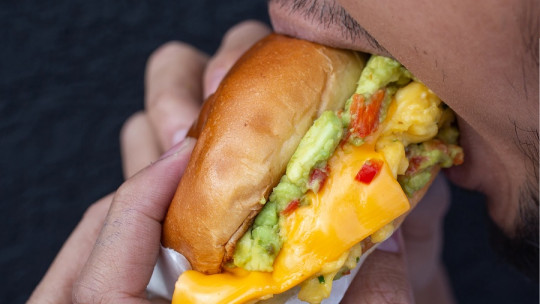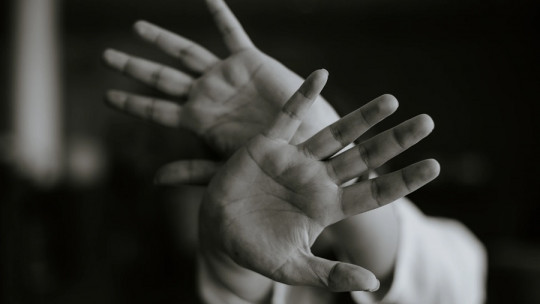
Diabetes has become a true epidemic in the first world, along with obesity. The causes of this have been the promotion of a sedentary lifestyle, easy access to cheap food and the difficulty in developing a healthy and active lifestyle.
It is for this reason, and because millions of new cases of diabetes mellitus are diagnosed every year, many people are worried about developing this disease, feeling an irrational fear of being diabetic and everything that it entails.
In this article we are going to address diabetophobia, the phobia of being diabetic in addition to explaining what it is, what its symptoms and causes are, the degree of interference in the lives of those who suffer from it, and the treatments used.
What is diabetophobia?
Diabetophobia is the irrational fear of suffering from diabetes. People who suffer from this specific phobia may suffer a high level of anxiety just thinking about diabetes these types of situations being extremely intrusive in your daily life.
Diabetes is a common medical condition, in which the body does not produce enough insulin, a hormone necessary to convert sugar into energy and thus maintain organic functions. The causes of this disease can be genetic and environmental, with obesity and having a sedentary lifestyle being risk factors.
Usually, people who suffer from diabetophobia are not diabetic. However, the simple act of showing any symptoms that may be related to diabetes can trigger a whole series of avoidant behaviors, anxious thoughts and general discomfort.
Having diabetic family members can be a factor that triggers this type of phobia, because the risk of suffering from diabetes is real due to having a history in the family. As the genetic factor is present, diabetophobics can exercise and control their diet in an extreme way.
Symptoms
The main symptom manifested in diabetophobia is anxiety. This can become so serious that it can reach the point of manifesting panic attacks. Furthermore, diabetic people They may over-control their diet and exercise excessively
Another symptom, common with phobias and anxiety disorders in general, is avoidance. Diabetophobics tend to avoid people who they know have been diagnosed with diabetes, even though this disease is not contagious. They do this avoidance above all to avoid having to constantly think that they are in front of a person who has something that scares them.
High anxiety from simply thinking about diabetes is common in diabetophobia, the constant fear of developing this disease the inability to cope with anxiety, muscle stiffness, sweating and tremors.
Impact on daily life
People with diabetophobia can carry out some behaviors that represent a real interference in their daily life, preventing them from developing as free people by being tied to habits that prevent them from developing a full and socially healthy life. It is common for this type of phobia to acquire habits related to eating and exercise.
High sugar consumption over long periods of time is considered a risk factor to develop diabetes, along with lack of exercise and having a high percentage of fat in the body. This is why people with diabetophobia can become obsessed with diet, avoiding any food that has a high carbohydrate content. In addition, you can join the gym and spend hours there or dedicate a lot of time to sports activities such as running, swimming or calisthenics.
Although controlling what you eat and having an active lifestyle are fundamental pillars for leading a healthy life, the truth is that taking them to the extreme is seriously counterproductive. Extremely avoiding carbohydrates and having an exclusively ketogenic diet can contribute to a lack of nutrients and, in the long run, develop health problems
If we add excessive exercise to the lack of nutrients, it can lead to injuries and difficulties recovering after a very demanding sporting activity.
Furthermore, one of the peculiarities that diabetophobic people can manifest is avoiding people with diabetes. This can interfere with social life, since if you knew someone with this disease, whether it was a friend, a family member or even your partner, reducing contact can lead to relationship problems.
Possible causes of this disorder
To this day it is unknown what exactly causes this type of phobia. Apparently, There are certain genetic and environmental factors that can play a determining role in the manifestation of diabetophobia. For example, if a person in the family, such as the mother or father, has felt great concern about diabetes, it is possible that the children worry exaggeratedly about this disease.
It may also be the case that the diabetic person suffers from some type of childhood trauma related to the disease such as the loss of a diabetic family member.
Some people develop this phobia when, when they go to the doctor, he informs them that their eating habits have led them to a situation close to diabetes. Being so close to developing the disease contributes to developing extreme habits to avoid diabetes, such as excessive diet control.
Treatment
Exposure therapy is usually one of the common treatments when addressing phobic disorders. They are used to desensitize the person to what causes irrational fear. The problem that arises with diabetophobia is that it is not possible to expose a person to being diabetic given the obvious ethical problem that this entails.
However, this does not mean that it is impossible to treat people diagnosed with this type of phobia through exposure. Also, and starting from cognitive-behavioral therapy, the person can be helped to be more aware of their problems. Knowledge about diabetes can be worked on being close to a diabetic person or helping them to have healthy lifestyle habits that will guarantee good prevention of diabetes.
Another option is, in the psychiatric field, the use of psychotropic drugs. For phobias it is common to use anxiolytics and antidepressants. Anxiolytics help prevent panic attacks, for this reason they can be of great help in diabetic people. As for antidepressants, although their name may indicate that they are only indicated for people with depression, the truth is that they have been helpful in the intervention and treatment of people with anxiety disorders.
Caffeine is a substance that activates and can lead to an anxious state One of the recommendations given by professionals to patients with phobia, especially diabetes, is to reduce drinks with this substance, such as coffee or tea. This helps to avoid an overexcited physiological state.
Some somewhat alternative therapies used to improve the lives of diabetic people have been Mindfulness, meditation, yoga or sports activities.
Stress reduction therapies based on Mindfulness They have been shown to be effective in treating problems associated with anxiety disorders, such as stress itself. Meditation has also been shown to be useful in reducing physiological activation, along with yoga.
As for sports activities, they have been shown to be very useful for people with diabetes, especially cardiovascular exercise. Aerobic exercise helps release endorphins, which produce emotional well-being. However, you should be careful with sports, given that one of the symptoms that a diabetic person can manifest is having an extremely active lifestyle.








